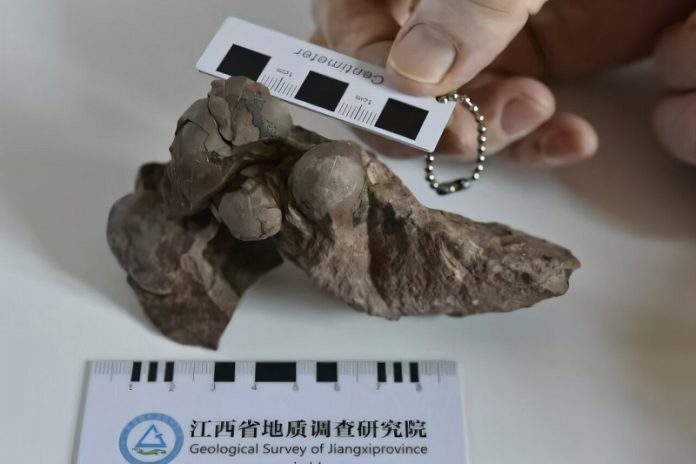
A group of scientists in China has confirmed that a fossilized egg found in 2021 is the smallest dinosaur egg ever discovered.
In their study, published in the journal Historical Biology, the team of paleontologists and evolutionary experts revealed details about where the eggs were found, how they studied them, and what they learned.
Before this discovery, the smallest known dinosaur egg measured 45.5 mm in length.
However, the newly found egg is even smaller, just 29 mm long, and it was the most complete of the group of six eggs uncovered.
These eggs were discovered at a construction site near Ganzhou, a city in southeast China, an area known for being one of the world’s best places to find dinosaur eggs.
The eggs were fossilized together in a group, all in good condition, and have been carefully studied by the team for three years.
Using advanced technology, such as an electron microscope, the scientists identified that the creatures inside the eggs were from a type of non-avian theropod dinosaur.
Theropods were carnivorous dinosaurs that walked on two legs, like the famous T. rex. However, these eggs belonged to a previously unknown species of dinosaur egg, which the researchers have named Minioolithus ganzhouensis.
The eggs are estimated to be around 80 million years old, dating back to the Late Cretaceous period, a time when dinosaurs still roamed the Earth.
The team used special techniques, like electron backscatter diffraction, to create detailed images of the eggshells and the embryos inside without damaging the fossils.
The researchers plan to continue studying the eggs and the site where they were found. The discovery site was well preserved, offering new clues about how dinosaurs built their nests.
The team hopes to learn more about the kind of dinosaur that laid these eggs and gain further insights into how baby dinosaurs developed inside their eggs. They are also interested in discovering more about the reproductive habits of dinosaurs in general.
This exciting find gives scientists a new opportunity to understand the ancient world of dinosaurs and how they cared for their young.
Source: KSR.



